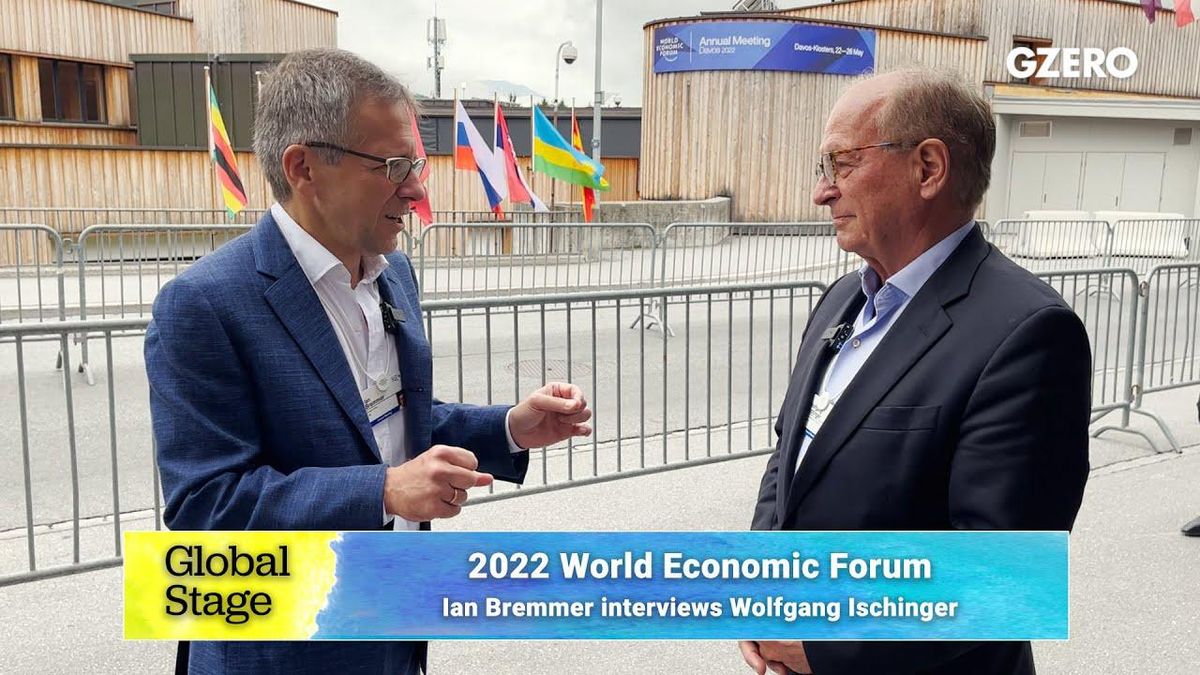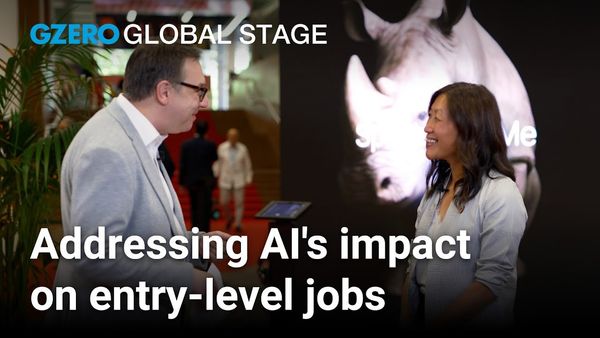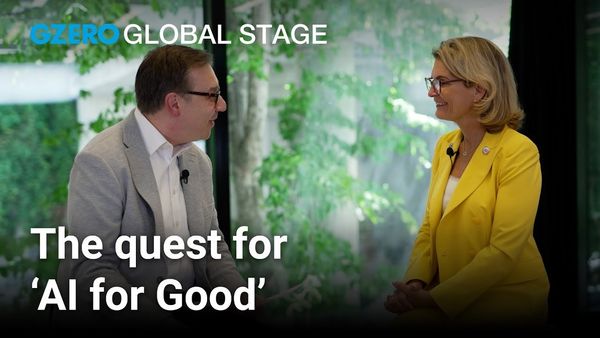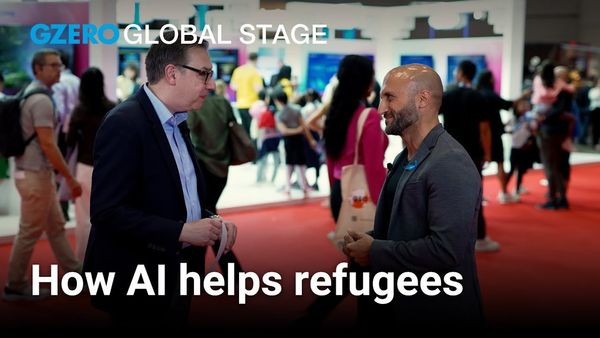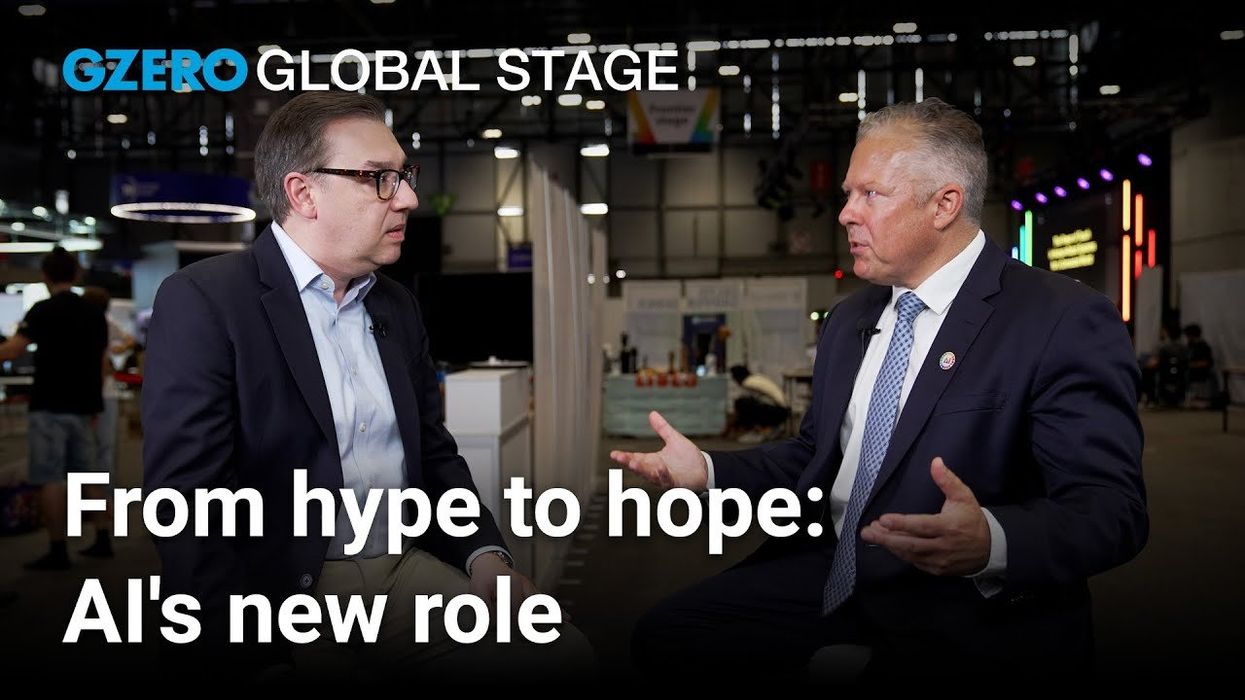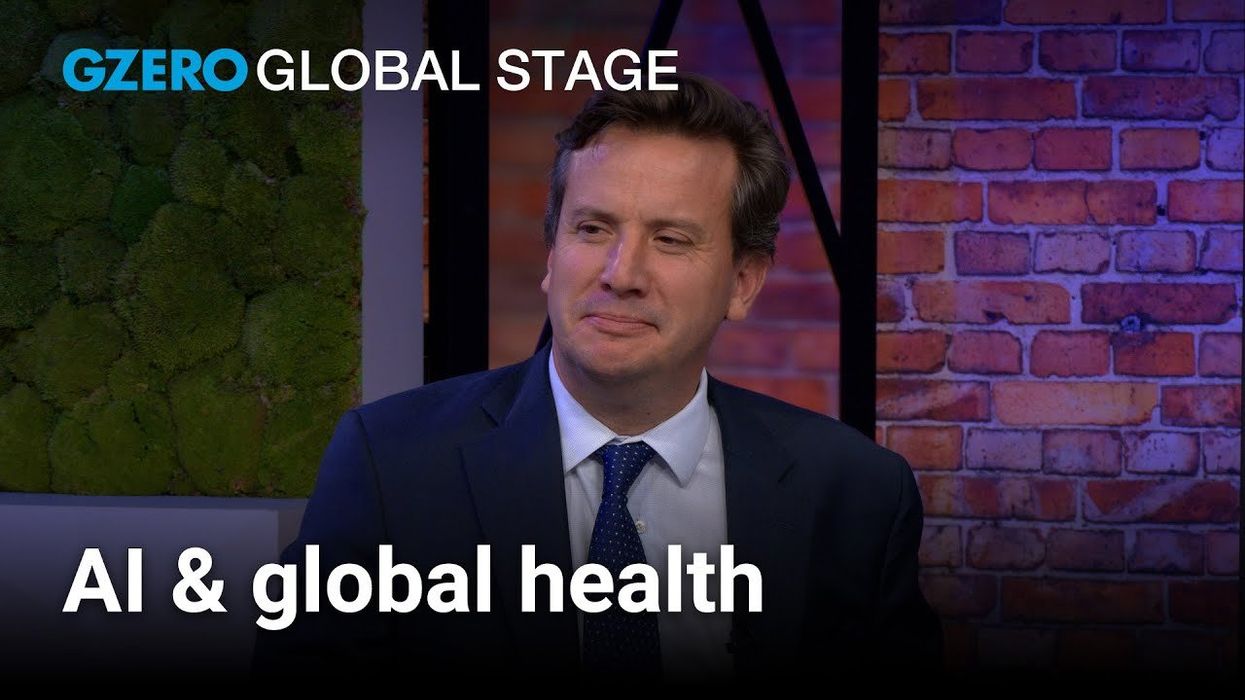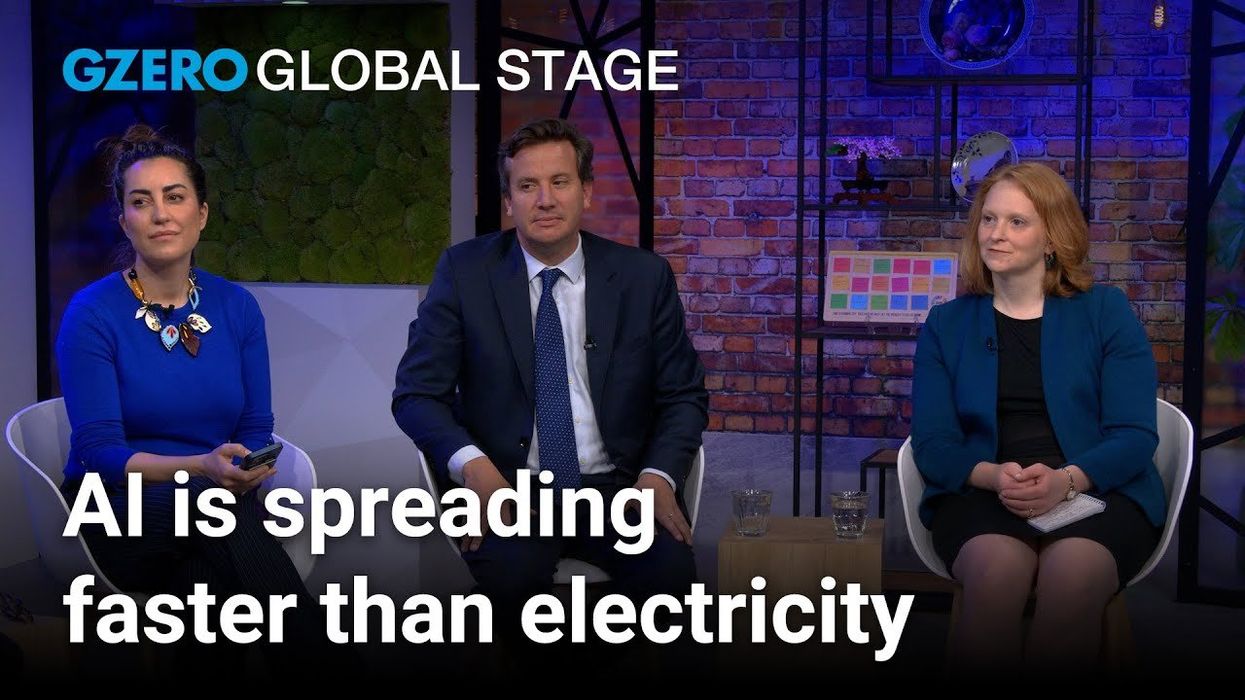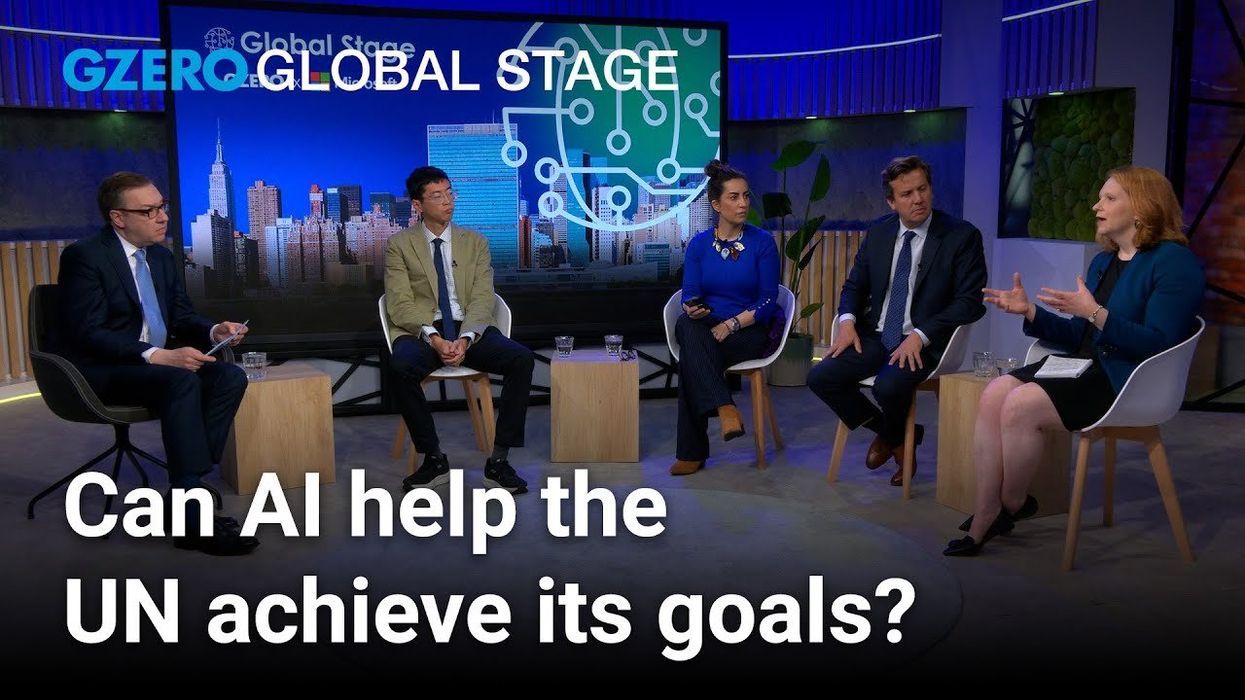For Wolfgang Ischinger, former chair of the Munich Security Conference, the state of transatlantic relations is in good shape right now, although whether we'll have the stamina to stay on course is uncertain. In a Global Stage interview with Ian Bremmer, he seems more worried about American war fatigue than the Europeans — although the EU has Viktor Orbán and it's hard for Germany to cut off Russian gas. One lesson Ischinger has learned from the current crisis is that Europe must have America's back on China, especially with Taiwan. And he calls German Chancellor Olaf Scholz's recent foreign policy U-turns as "going out the window."
Ian Bremmer: With my friend Wolfgang Ischinger here at the World Economic Forum in Davos. Wolfgang, so state of transatlantic relations today, from the Davos perspective, what do you think?
Wolfgang Ischinger: Good shape. Better than at any time in recent memory. If we had had a Davos a year ago, we would've been talking about the debacle of Afghanistan, et cetera. We're in good shape now. NATO is essentially on track, the European Union has surprisingly not fallen apart. I think my only concern is if it is correct to assume that this war in Ukraine will drag on for not weeks but months, are we going to be in good shape three, six, nine months down the road? That's my concern. Are we going to have the stamina to stay on course?
Ian Bremmer: Now, question; to the extent that war fatigue is starting to set in over time, and again, I think most people presume this is not ending any time soon.
Wolfgang Ischinger: Exactly.
Ian Bremmer: Does it come first from the Europeans or from the Americans? And why?
Wolfgang Ischinger: Well, let's talk about America for a moment. You guys have elections coming up, midterm elections, and I'm not so certain that the average American voter is going to like the idea of paying higher gas prices and spending more money on foreign expeditions, etc., etc. So I'm worried a little bit about the American commitment longer term. In Europe, I think at the moment we're in good shape, but of course we have these outliers. We have Viktor Orbán.
Ian Bremmer: Hungary.
Wolfgang Ischinger: We have Hungary, and we have a couple of other partners that have specific interests. Germany has its own problem with gas. I wish I could say in six weeks or in 12 weeks, we're going to be able to cut gas imports from Russia. It's hard to do. It's hard to do, and I feel sorry for those in my own government who have to respond to this urgent question from our Ukrainian partners. When are you going to stop financing the Russian war of aggression by continuing to buy this stuff? But then again, it's not going to help if Germany cuts gas imports now. With the obvious, obvious consequence of a significant recession, then of course the commitment by the German wider public for our Ukrainian determination will surely shrink. And whose interest would we serve with that? So this is really a dilemma.
Ian Bremmer: And the Americans and the Europeans have had diversion perspectives for a while on Russia that are now aligning. They've also had some diversion perspectives on China for a while.
Wolfgang Ischinger: Yes. Yeah.
Ian Bremmer: Are they now aligning?
Wolfgang Ischinger: I think there's one lesson we are learning, we Europeans. We cannot ignore that the US is looking at a huge problem, potential problem with China, with the Taiwan issue, etc. And we cannot possibly leave the United States alone in that. In other words, we need to understand that even though this is many thousands of miles away, it is in our interest to get involved. Maybe not militarily, we don't have the capacities militarily, but certainly politically, and we need much closer coordination between Washington, and Brussels, and Berlin and Paris on China.
Ian Bremmer: And Olaf Scholz so far, when you saw that initial speech he gave, the turning point speech he gave, did it reflect for you a new strategic vision for Germany? Is this a new generation for Germany in politics or is it more modest than that?
Wolfgang Ischinger: No. It was a major decision. Look, essential elements of established German foreign policy went up the chimney.
Ian Bremmer: We'd say out the window.
Wolfgang Ischinger: Out the window.
Ian Bremmer: But that sounds more definitive, if it's up the chimney.
Wolfgang Ischinger: Out the window. The idea which about which we had been preaching for many years, the future partnership with Russia; out the window, no longer possible. The idea of a security order for all of Europe, with Russia included; out the window. In other words for no country has this Russian attack against Ukraine produced more sharp cuts and the need for total revision of our foreign policy. The problem for Olaf Scholz is not that he gave the wrong speech. The problem for him is that it's not so clear that all of his followers in his own party agree with his speech-
Ian Bremmer: Social democrats.
Wolfgang Ischinger: And with the consequences of spending a hundred billion extra on defense, and on meeting the 2% defense goal going forward, etc. So, he has to fight this internal political fight, not against the opposition, which supports him, but against his own party.
Ian Bremmer: The Americans have been saying for a long time, how come the Europeans aren't sacrificing the Germans? The Europeans are sacrificing more this time around. There's no question.
Wolfgang Ischinger: Yes. Absolutely.
- The Graphic Truth: The casualties of the Ukraine war - GZERO Media ›
- Enter Olaf — can he keep Germany's traffic light blinking? - GZERO ... ›
- A different Davos amid geopolitical conflicts and security issues ... ›
- Ukraine war dominates Davos discussions - GZERO Media ›
- Can Europe trust the US - or its own nations? Wolfgang Ischinger's ... ›
- Europe's place in tomorrow's world - GZERO Media ›
- The yet-unseen consequences of Russia's war in Ukraine - GZERO Media ›


